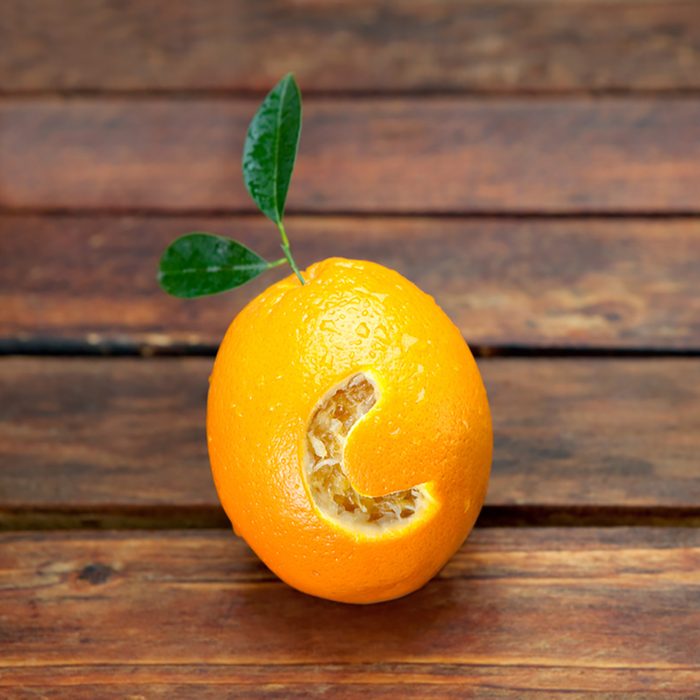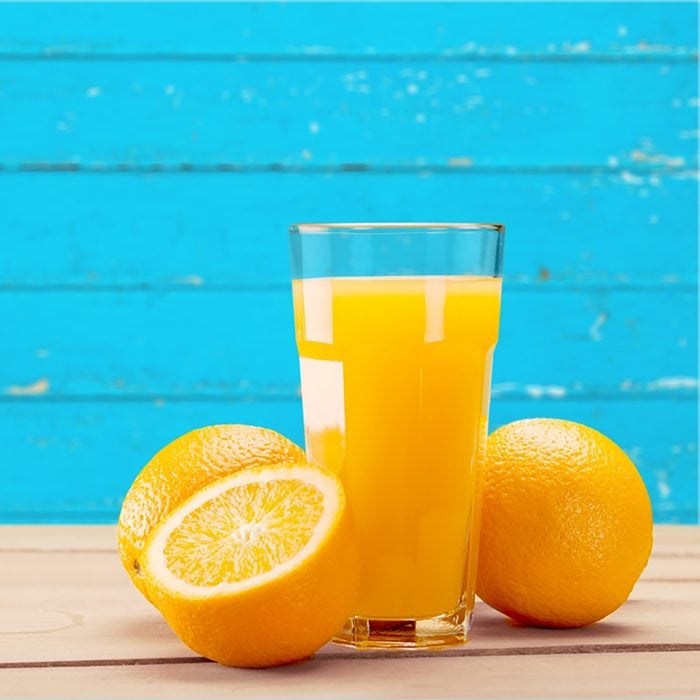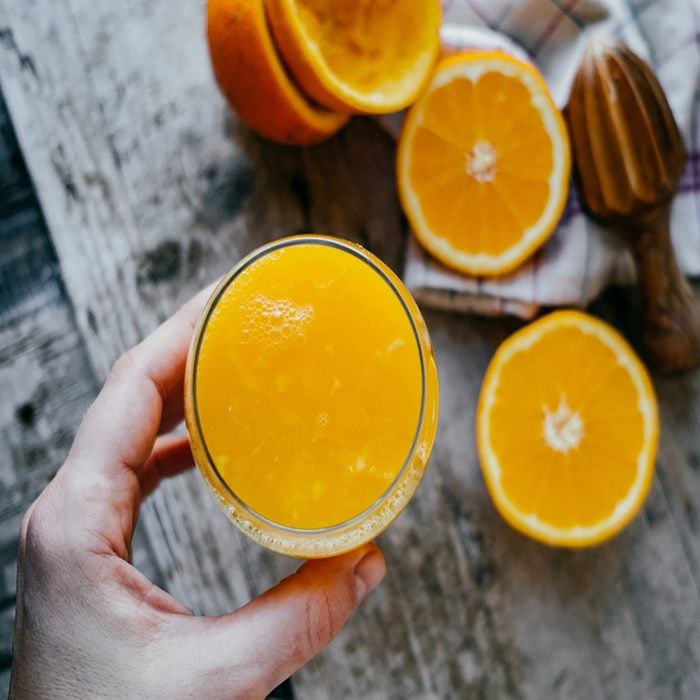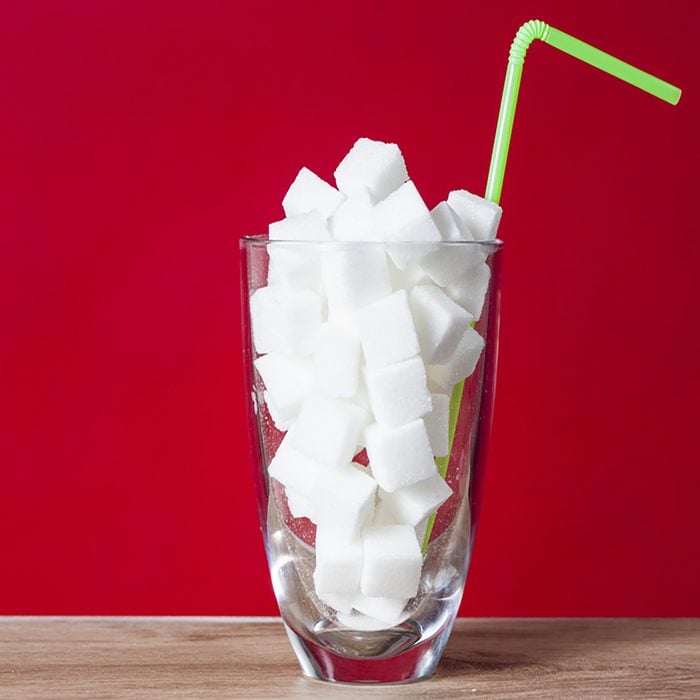
Many of us crave a sweet glass of orange juice right alongside our coffee for extra pep in our step as well as a healthy dose of vitamin C!
But these days, nothing in the kitchen is safe from controversy. Drinking too much juice has been linked to the increasing rate of childhood obesity, and experts have recommended schools swap fruit juice for whole fruit on their menus. We decided to consult an expert. Is orange juice our friend? Here’s what registered dietician Sandra Arevalo, spokesperson for the Academy of Nutrition and Dietetics, says orange juice is doing for you.

It’s Giving You a Vitamin Boost
Just one orange delivers 116% of your daily vitamin C, the magical vitamin that strengthens our immune system and helps us defeat viruses. But wait, there’s more: store-bought fortified juices can come packed with extra calcium and three essential vitamins—A, E and D.

The Pulp Reduces Sugar in Your Blood
A lot of us probably prefer the no-pulp juice, but that’s basically filtering out all the good stuff. The pulp is where the fiber is, and fiber helps to decrease the sugars in the blood. Fiber also lowers triglycerides and cholesterol levels.
For the most health benefits, pick a juice with extra pulp!

It Adds Cancer-Fighting Antioxidants
OJ gifts us with an array of powerful antioxidants—those things that help keep healthy cells from mutating into cancer cells. We’re also getting folate, which plays a similar role and is essential for tissue growth and proper cell function.
Try your OJ in this refreshing Orange Lemonade.

It Helps You See Clearly
Age-related macular degeneration is related to low levels of antioxidants, so adding more to your body can help ward off that sight-stealing disease. Here’s some science—it’s thought that antioxidants can prevent cellular damage in our retinas by reacting with the free radicals that are produced when we absorb light.

It Delivers Way Too Much Sugar
It takes a LOT of oranges to make one full cup of juice. “A cup of juice will give you 26 grams of sugar where an orange will give you 4-5 grams,” says Arevalo. That cup of juice will exceed the daily recommendation of sugar for women (25 grams) and get men almost three-quarters of the way there (37 grams).
Arevalo recommends no more than a half-cup of juice a day, which you can dilute in water. Better yet—eat the whole orange! “You’ll get all the vitamins and fiber without the added sugar,” she says.

It Might Hurt Your Teeth
Juice is highly acidic and over time, drinking excessive amounts can erode the enamel on your teeth. The longer juice is in contact with our teeth, the more damage that can be done. Instead of leisurely sipping juice over an hour-long brunch, drink it quickly, then follow with a glass of water.
